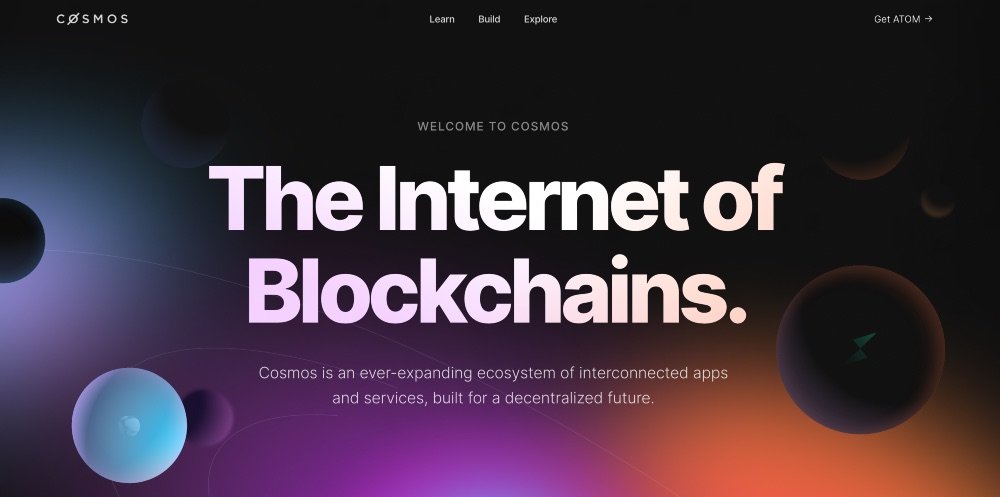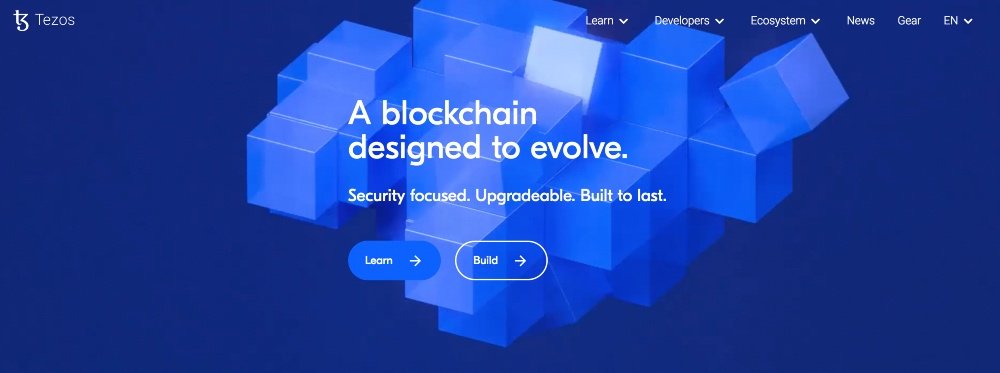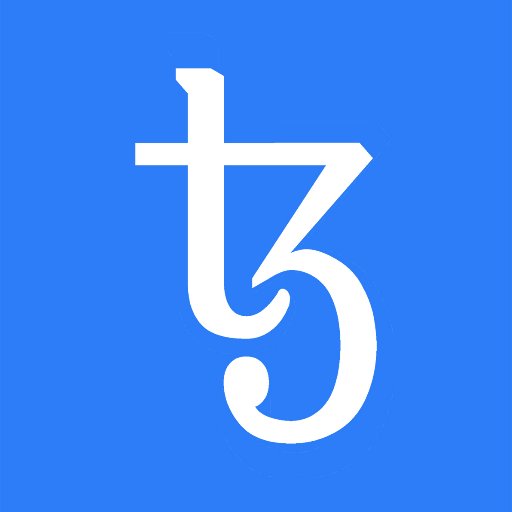Confronta Cosmos (ATOM) vs Tezos (XTZ) Coin
This article compares two cryptocurrencies from the top 50 list of cryptos ranked by market cap. These coins are Cosmos (ATOM) and Tezos (XTZ). Both of them emerged after the crypto market decline that took place in early 2018 and managed to quickly gain a strong presence among the leaders of the industry. Both networks are based on a proof-of-stake consensus mechanism. Tezos and Cosmos are focused on providing users with a scalable blockchain-based network to solve the well-known issues of Bitcoin and Ethereum. Let's see which of the coins seems to be a worthier investment.
What Is Cosmos (ATOM)?
Cosmos (ATOM) is a native token of the Cosmos Hubs blockchain network. The latter aims to build a decentralized ecosystem hosting smart contracts, services, apps, etc. Unlike Ethereum, which has similar functionality, Cosmos was created with scalability and eco-friendliness in mind, so instead of PoW, it relies on PoS. The Cosmos Hubs platform is designed to be faster and cheaper than Ethereum. The fee is $0.01, and the transaction time is 7 seconds.

One can use Cosmos to build financial applications, in-game tokens, and entire online organizations holding digital assets on-chain. More than that, Cosmos offers a number of services. First off, Cosmos has a native decentralized crypto exchange. Another service is called Custodian. It can be used for crypto coins storage and management of accounts associated with different blockchains. One more service is called Router. It provides IBC connections that bridge different blockchains.
Cosmos was conceived in 2014, although at that moment, it was a bit different project with a different name. In 2016, the platform team released a Cosmos whitepaper. The current CEO of Cosmos is Peng Zhong. As of July 19, 2022, the ATOM price is over $10. The market cap is nearly $3 billion, which makes it the 28th most significant market cap in the industry.
What Is Tezos (XTZ)?
Tezos (XTZ) is a native token of the blockchain network of the same name. The Tezos blockchain serves for creating and running smart contracts, decentralized apps, financial operations, etc. In many aspects, Tezos resembles Ethereum. However, the former is designed to avoid the issues of the latter. Scalability, expensive transactions, and operational speed are well-known issues of Ethereum. More than that, Tezos has a structure that can be easily changed and improved without the need to go through a hard fork process. Instead, Tezos relies on self-amendment, which is more seamless and cheaper than hard forks.

The special staking (validating) process on Tezos is called "baking." Baking incentivizes the Tezos users to participate in blockchain governance in exchange for rewards. The platform is secured with a Proof-of-stake mechanism.
The project was initiated in 2014. It took several years to launch Tezos. The XTZ tokens hit the market in 2018. As of July 19, 2022, the XTZ price is nearly $1.7 while the market cap exceeds $1.5 billion making the coin the 41st biggest crypto by market cap.
Cosmos vs. Tezos (table)
| Factor | Cosmos | Tezos |
| The price as of July 2022 | $10 | $1.7 |
| Market cap as of July 2022 | $3 billion | $1.5 billion |
| Rank as of July 2022 | #28 | #41 |
| All-time high | $44.45 (January 17, 2022) | $9.12 (October 4, 2021) |
| Decline (compared to all-time high) | 76.3% | 80.6% |
| All-time low | $1.16 (March 13, 2020) | $0.35 (December 7, 2018) |
| Growth (compared to an all-time low) | 809.9% | 404% |
| Popular markets | Binance, Coinbase, KuCoin, Gate.io, Huobi Global | Binance, Coinbase, KuCoin, Gate.io, Huobi Global |
| Platform | Cosmos Hubs | Tezos |
| Consensus mechanism | PoS | PoS |
| Products | Marketplace, Security Provider, Custodian, Router | Tezos wallet |
| Use cases | dapps, smart contracts, interchain connectivity | dapps, smart contracts, partnership with Societe Generale |
Cosmos vs. Tezos (details)
The price and the market cap
Both coins became available for traders at about the same time. ATOM has nearly twice as much market cap as Tezos and a significantly higher price. We can conclude that by this measure, ATOM is superior to Tezos.
Popular markets
Tezos and ATOM are traded on the same exchanges. Both coins have little traction on Kraken and are mostly traded on Binance and Coinbase. KuCoin is also an important exchange for both brands. In general, we can't say that any of these coins have an advantage in terms of availability on exchanges.
Platform
Both networks are based on custom branded blockchains. It makes these platforms equally independent.
Consensus mechanism
Both platforms utilize the PoS consensus mechanism. It is eco-friendly and quite popular, although some people criticize PoS for several reasons. Tezos has a somewhat unique approach to PoS, incorporating the baking concept. It can turn some newbies away as it sounds unfamiliar. On the other hand, some might find baking a more convenient process than regular staking. So we can't say that any of these coins is a better choice by this parameter. It depends.
Products
Cosmos has already created several products (Custodian, Router, etc.) while Tezos is slightly behind. On the other hand, dozens of products are built on top of Tezos. These projects are diverse, and in many aspects, they are closely associated with the Tezos platform, baking, and so on. Still, we should admit that the Cosmos team seems to be more prolific.
Use cases
Use cases of Cosmos and Tezos are pretty similar. Cosmos has the unique function of bridging different blockchains. Tezos is not busy doing something like that. However, Tezos is a partner of the French bank called Societe Generale, which is a decent use case for any cryptocurrency platform. We can't say that one of these use cases is more important than the other. Both platforms are solid projects, and they are undoubtedly among the leaders for a reason.
| Società |
|---|
User rating
| 4 recensioni degli utenti | 4 recensioni degli utenti |
Cryptogeek rating
Punteggio di Fiducia
Come funzionaAbout
|
Cosmos è una rete che collega diversi registri distribuiti. Significa che Cosmos aiuta a elaborare le operazioni interblockchain. L'algoritmo di consenso utilizzato da Cosmos è Proof-of-Stake. Attualmente, i validatori dell'ecosistema Cosmos stanno formando un protocollo IBC (Inter-Blockchain Communication). Il token nativo del sistema Cosmos è ATOM.
|
Tezos è una piattaforma di contratto intelligente con una propria blockchain e un token nativo (Tezos, XTZ). La governance viene eseguita tramite l'algoritmo Proof-of-Stake. Significa che le parti interessate (coloro che possiedono almeno 10.000 XTZ) votano per le modifiche al protocollo. Questi validatori ("fornai") ricevono premi per l'esecuzione della validazione. I premi vengono generati tramite l'inflazione. Anche coloro che delegano la loro XTZ ai fornai possono guadagnare. Tezos ha un meccanismo di "auto-modifica" incorporato che consente di modellare la rete senza dover creare forcelle. Mantiene unita la comunità e semplifica il processo di sviluppo.
|
Tipo
| coin | coin |
Data di lancio
| 2016 | 2016 |
Località:
| Switzerland | USA |
Lingue
| Nessun dato | Nessun dato |
Team
| Not Public | Public |
Protocollo
| Private blockchain | Public blockchain |
Prezzo attuale (USD)
| 4.5077 | 0.7880 |
Più alto di sempre (USD)
| 8.3100 | 4.4600 |
Variazione di prezzo (24 ore)
| 0.55 | 0.73 |
Volume (24 ore)
| 3181121.39781 | 659965.01932 |
Hashrate
| Nessun dato | Nessun dato |
Limite Massimo
| Nessun dato | Nessun dato |
Totale offerta
| Nessun dato | Nessun dato |
Limite in circolazione
| 465485907.87797 | 1076240855.51370 |
Velocità di transazione / Tempo blocco
| 4000 | 15 |
Commissione sulla transazione
| Nessun dato | Nessun dato |
Profitabilità di mining
| Nessun dato | Nessun dato |
Algoritmo
| Nessun dato | Nessun dato |
Proof type
| PoS | DPoS |
Completamente estratto
| Nessun dato | Nessun dato |
Smart contract indirizzo
| Nessun dato | Nessun dato |
Totale monete estratte
| 190688439.00000 | 810904882.00580 |
Sta commerciando
| yes | yes |
Ricompensa di blocco
| 0.000000000000 | 0.000000000000 |
Tempo di blocco
| Nessun dato | Nessun dato |
| Società | ||
|---|---|---|
| User rating | 4 recensioni degli utenti | 4 recensioni degli utenti |
| Cryptogeek rating | ||
| Punteggio di Fiducia Come funziona |
| About |
Cosmos è una rete che collega diversi registri distribuiti. Significa che Cosmos aiuta a elaborare le operazioni interblockchain. L'algoritmo di consenso utilizzato da Cosmos è Proof-of-Stake. Attualmente, i validatori dell'ecosistema Cosmos stanno formando un protocollo IBC (Inter-Blockchain Communication). Il token nativo del sistema Cosmos è ATOM.
|
Tezos è una piattaforma di contratto intelligente con una propria blockchain e un token nativo (Tezos, XTZ). La governance viene eseguita tramite l'algoritmo Proof-of-Stake. Significa che le parti interessate (coloro che possiedono almeno 10.000 XTZ) votano per le modifiche al protocollo. Questi validatori ("fornai") ricevono premi per l'esecuzione della validazione. I premi vengono generati tramite l'inflazione. Anche coloro che delegano la loro XTZ ai fornai possono guadagnare. Tezos ha un meccanismo di "auto-modifica" incorporato che consente di modellare la rete senza dover creare forcelle. Mantiene unita la comunità e semplifica il processo di sviluppo.
|
|---|---|---|
| Tipo | Tipo coin | Tipo coin |
| Data di lancio | Data di lancio 2016 | Data di lancio 2016 |
| Località: | Località: Switzerland | Località: USA |
| Lingue | Lingue Nessun dato | Lingue Nessun dato |
| Team | Team Not Public | Team Public |
| Protocollo | Protocollo Private blockchain | Protocollo Public blockchain |
| Prezzo attuale (USD) | Prezzo attuale (USD) 4.5077 | Prezzo attuale (USD) 0.7880 |
| Più alto di sempre (USD) | Più alto di sempre (USD) 8.3100 | Più alto di sempre (USD) 4.4600 |
| Variazione di prezzo (24 ore) | Variazione di prezzo (24 ore) 0.55 | Variazione di prezzo (24 ore) 0.73 |
| Volume (24 ore) | Volume (24 ore) 3181121.39781 | Volume (24 ore) 659965.01932 |
| Hashrate | Hashrate Nessun dato | Hashrate Nessun dato |
| Limite Massimo | Limite Massimo Nessun dato | Limite Massimo Nessun dato |
| Totale offerta | Totale offerta Nessun dato | Totale offerta Nessun dato |
| Limite in circolazione | Limite in circolazione 465485907.87797 | Limite in circolazione 1076240855.51370 |
| Velocità di transazione / Tempo blocco | Velocità di transazione / Tempo blocco 4000 | Velocità di transazione / Tempo blocco 15 |
| Commissione sulla transazione | Commissione sulla transazione Nessun dato | Commissione sulla transazione Nessun dato |
| Profitabilità di mining | Profitabilità di mining medium | Profitabilità di mining medium |
| Algoritmo | Algoritmo Nessun dato | Algoritmo Nessun dato |
| Proof type | Proof type PoS | Proof type DPoS |
| Completamente estratto | Completamente estratto Nessun dato | Completamente estratto Nessun dato |
| Smart contract indirizzo | Smart contract indirizzo Nessun dato | Smart contract indirizzo Nessun dato |
| Totale monete estratte | Totale monete estratte 190688439.00000 | Totale monete estratte 810904882.00580 |
| Sta commerciando | Sta commerciando yes | Sta commerciando yes |
| Ricompensa di blocco | Ricompensa di blocco 0.000000000000 | Ricompensa di blocco 0.000000000000 |
| Tempo di blocco | Tempo di blocco Nessun dato | Tempo di blocco Nessun dato |
Media
Sito web
| cosmos.network | www.tezos.com |
| @cosmos | Tezos |
| Sito web | Sito web cosmos.network | Sito web www.tezos.com |
|---|---|---|
| Twitter @cosmos | Twitter Tezos |
Vantaggi
| Can bring passive income Has credible use cases | Has impressive on-chain governance Self-amending blockchain Secure smart contract programming language |
Svantaggi
| Problems with staking | ICO was followed by delays Young ledger High-risk investment |
Valutazione
| User rating | User rating 4 recensioni degli utenti | User rating 4 recensioni degli utenti |
|---|---|---|
| Cryptogeek rating | Cryptogeek rating | Cryptogeek rating |
| Vantaggi | Vantaggi Can bring passive income Has credible use cases | Vantaggi Has impressive on-chain governance Self-amending blockchain Secure smart contract programming language |
| Svantaggi | Svantaggi Problems with staking | Svantaggi ICO was followed by delays Young ledger High-risk investment |
La valutazione degli utenti di Cosmos (ATOM) è 5, basata sulle recensioni degli utenti di 4. La valutazione degli utenti dell'azienda Tezos (XTZ) è 4.5, basata sulle recensioni degli utenti di 4.
We also calculate the special Cryptogeek TrustScore based on the characteristics of each coin.
| Scegliamo il vincitore in base al nostro Punteggio di Fiducia. Ricorda, dipende ancora da te quale compagnia scegliere! Come calcoliamo Il Punteggio di Fiducia? |
Conclusion
Both coins are doing well and represent ambitious and robust ecosystems. It seems that Cosmos is developing faster than Tezos, both market- and platform-wise. However, Tezos has several unique traits, so Cosmos can't be a 100% replacement for Tezos. Both projects are suitable for their own reasons. Now, as you know more about them, you can decide which of these coins looks like a better investment.
This article compares two cryptocurrencies from the top 50 list of cryptos ranked by market cap. These coins are Cosmos (ATOM) and Tezos (XTZ). Both of them emerged after the crypto market decline that took place in early 2018 and managed to quickly gain a strong presence among the leaders of the industry. Both networks are based on a proof-of-stake consensus mechanism. Tezos and Cosmos are focused on providing users with a scalable blockchain-based network to solve the well-known issues of Bitcoin and Ethereum. Let's see which of the coins seems to be a worthier investment.
What Is Cosmos (ATOM)?
Cosmos (ATOM) is a native token of the Cosmos Hubs blockchain network. The latter aims to build a decentralized ecosystem hosting smart contracts, services, apps, etc. Unlike Ethereum, which has similar functionality, Cosmos was created with scalability and eco-friendliness in mind, so instead of PoW, it relies on PoS. The Cosmos Hubs platform is designed to be faster and cheaper than Ethereum. The fee is $0.01, and the transaction time is 7 seconds.

One can use Cosmos to build financial applications, in-game tokens, and entire online organizations holding digital assets on-chain. More than that, Cosmos offers a number of services. First off, Cosmos has a native decentralized crypto exchange. Another service is called Custodian. It can be used for crypto coins storage and management of accounts associated with different blockchains. One more service is called Router. It provides IBC connections that bridge different blockchains.
Cosmos was conceived in 2014, although at that moment, it was a bit different project with a different name. In 2016, the platform team released a Cosmos whitepaper. The current CEO of Cosmos is Peng Zhong. As of July 19, 2022, the ATOM price is over $10. The market cap is nearly $3 billion, which makes it the 28th most significant market cap in the industry.
What Is Tezos (XTZ)?
Tezos (XTZ) is a native token of the blockchain network of the same name. The Tezos blockchain serves for creating and running smart contracts, decentralized apps, financial operations, etc. In many aspects, Tezos resembles Ethereum. However, the former is designed to avoid the issues of the latter. Scalability, expensive transactions, and operational speed are well-known issues of Ethereum. More than that, Tezos has a structure that can be easily changed and improved without the need to go through a hard fork process. Instead, Tezos relies on self-amendment, which is more seamless and cheaper than hard forks.

The special staking (validating) process on Tezos is called "baking." Baking incentivizes the Tezos users to participate in blockchain governance in exchange for rewards. The platform is secured with a Proof-of-stake mechanism.
The project was initiated in 2014. It took several years to launch Tezos. The XTZ tokens hit the market in 2018. As of July 19, 2022, the XTZ price is nearly $1.7 while the market cap exceeds $1.5 billion making the coin the 41st biggest crypto by market cap.
Cosmos vs. Tezos (table)
| Factor | Cosmos | Tezos |
| The price as of July 2022 | $10 | $1.7 |
| Market cap as of July 2022 | $3 billion | $1.5 billion |
| Rank as of July 2022 | #28 | #41 |
| All-time high | $44.45 (January 17, 2022) | $9.12 (October 4, 2021) |
| Decline (compared to all-time high) | 76.3% | 80.6% |
| All-time low | $1.16 (March 13, 2020) | $0.35 (December 7, 2018) |
| Growth (compared to an all-time low) | 809.9% | 404% |
| Popular markets | Binance, Coinbase, KuCoin, Gate.io, Huobi Global | Binance, Coinbase, KuCoin, Gate.io, Huobi Global |
| Platform | Cosmos Hubs | Tezos |
| Consensus mechanism | PoS | PoS |
| Products | Marketplace, Security Provider, Custodian, Router | Tezos wallet |
| Use cases | dapps, smart contracts, interchain connectivity | dapps, smart contracts, partnership with Societe Generale |
Cosmos vs. Tezos (details)
The price and the market cap
Both coins became available for traders at about the same time. ATOM has nearly twice as much market cap as Tezos and a significantly higher price. We can conclude that by this measure, ATOM is superior to Tezos.
Popular markets
Tezos and ATOM are traded on the same exchanges. Both coins have little traction on Kraken and are mostly traded on Binance and Coinbase. KuCoin is also an important exchange for both brands. In general, we can't say that any of these coins have an advantage in terms of availability on exchanges.
Platform
Both networks are based on custom branded blockchains. It makes these platforms equally independent.
Consensus mechanism
Both platforms utilize the PoS consensus mechanism. It is eco-friendly and quite popular, although some people criticize PoS for several reasons. Tezos has a somewhat unique approach to PoS, incorporating the baking concept. It can turn some newbies away as it sounds unfamiliar. On the other hand, some might find baking a more convenient process than regular staking. So we can't say that any of these coins is a better choice by this parameter. It depends.
Products
Cosmos has already created several products (Custodian, Router, etc.) while Tezos is slightly behind. On the other hand, dozens of products are built on top of Tezos. These projects are diverse, and in many aspects, they are closely associated with the Tezos platform, baking, and so on. Still, we should admit that the Cosmos team seems to be more prolific.
Use cases
Use cases of Cosmos and Tezos are pretty similar. Cosmos has the unique function of bridging different blockchains. Tezos is not busy doing something like that. However, Tezos is a partner of the French bank called Societe Generale, which is a decent use case for any cryptocurrency platform. We can't say that one of these use cases is more important than the other. Both platforms are solid projects, and they are undoubtedly among the leaders for a reason.

